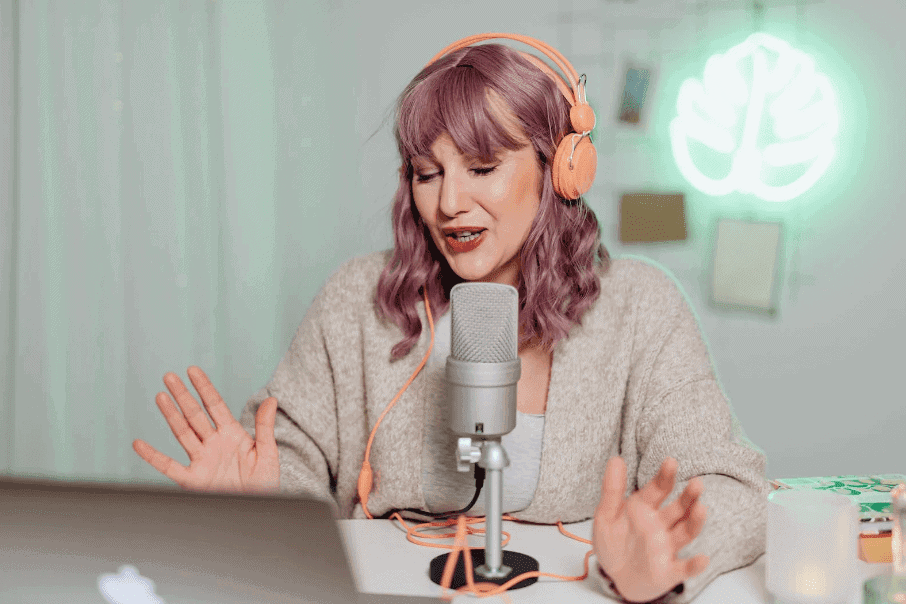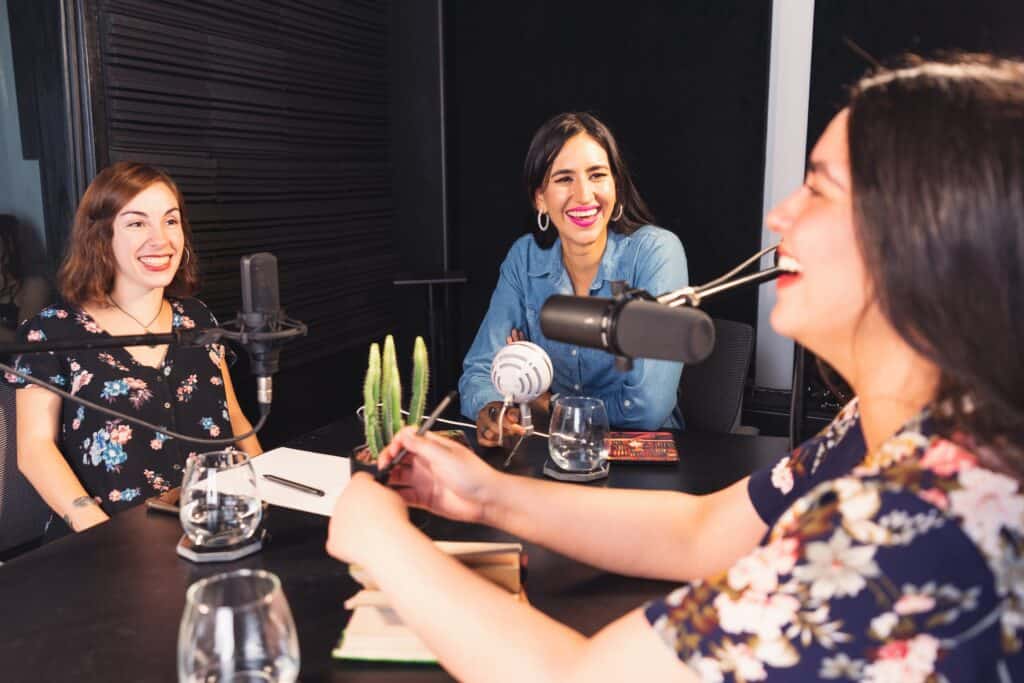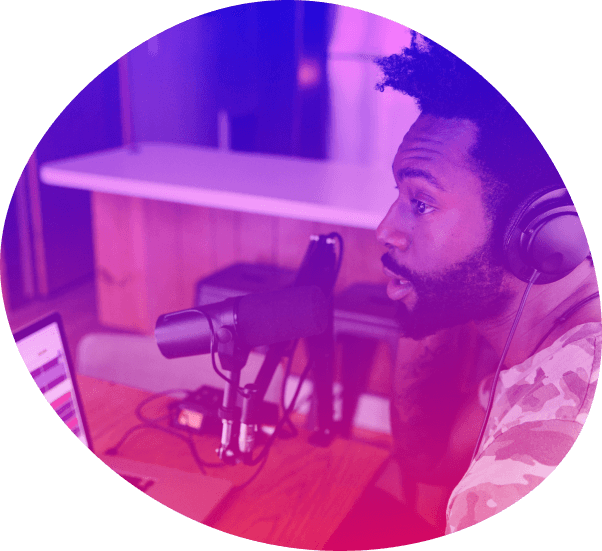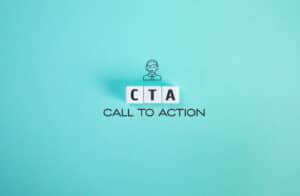Podcasting can be a great way to share your thoughts and ideas with the world, but not if you’re making some of the biggest podcast mistakes.
In this guide, we’ll teach you the 10 biggest mistakes to avoid to ensure you’re approaching this powerful medium like a pro while eliminating rookie errors. With the right knowledge, you can create a successful podcast that will engage and entertain your listeners.
Read on to ensure you’re not needlessly making mistakes that can cost you time, energy, and money.
Action
Haven’t started your show yet? Check our complete guide on starting a podcast. It tells you everything you need to know about planning, recording, and launching a new show.
Mistake 1: Not Having A Clear Goal, Niche, or Target Audience
Podcasting is a great way to connect with an audience and share your passion for a particular topic. However, before you launch your podcast, it’s important to have a clear goal, niche, or target audience in mind.
Without a clear focus, your podcast is likely to meander and fail to captivate listeners. Additionally, you won’t be able to effectively market your show or build a strong following.
To avoid these pitfalls, take the time to clearly define your purpose and target audience before you start recording. By doing so, you’ll set yourself up for success and ensure that your podcast has the best chance of resonating with listeners.
Most people make the mistake of just thinking about what people want. Instead, find out what your audience actually wants, and create content for them.
A good way to do this is by finding common questions your audience is asking on Q&A sites like Quora, Facebook groups, and other online communities and then just giving them the answers.
A “listen-and-respond” approach is better than just doing what you think as an individual.
Mistake 2: Recording Without Proper Soundproofing
One of the most common mistakes podcast creators make is recording without proper soundproofing. This can lead to a number of problems, including echo and background noise.
Even if you have a great microphone, recording in an untreated room can make your audio sound poor. If you’re serious about podcasting, you need to invest in some basic equipment as well as quality sound treatment.
Tip
If you want to produce quality audio, you need a professional microphone. Check out our list of the best podcast microphones.
This doesn’t have to be expensive – you can find acoustic foam panels online or at your local hardware store.
Another mistake to avoid is recording in a noisy environment. If you can’t find a quiet room to record in, try using a noise-canceling microphone. These microphones are designed to filter out background noise, so you can focus on your recording.
Finally, make sure to test your audio before you start recording. Listen for any echo or background noise and make sure it’s not too loud or soft. By taking these simple steps, you can ensure that your podcast sounds professional and polished.
Mistake 3: Not Speaking Clearly
One of the most common podcasting mistakes podcasters make is not speaking clearly. This can be a problem for two reasons.
First, if your speech is unclear, it will be difficult for listeners to understand what you’re saying. It can also make you sound unprofessional.
There are a few things you can do to help ensure that you’re speaking clearly.
- Slow down your speech and enunciate your words.
- Avoid mumbling or using filler words such as “um” or “uh.”
- Make sure you’re taking breaks in between points so that listeners have a chance to process what you’re saying.
By avoiding these common mistakes, you can help ensure that your podcast is clear and professional.

Mistake 4: Focusing On Quantity Over Quality
When it comes to podcasting, quality should always be your top priority. Far too many podcasters make the mistake of pumping out new episodes as quickly as possible without taking the time to ensure that each one is high-quality and engaging.
This approach may help you to grow your audience more quickly, but it will ultimately lead to listener burnout and a decline in overall engagement.
If you want your podcast to be successful in the long run, focus on producing the best quality episodes you can. Take the time to plan each episode carefully, and don’t hesitate to edit out any sections that don’t add value.
By investing in quality over quantity, you’ll be able to build a more loyal and engaged following that will stick with you for years to come.
Mistake 5: Being Unprepared, Especially for Interviews or Guest Appearances
Unpreparedness is one of the most common podcasting mistakes, and it can take many different forms.
Maybe you forgot to do your research on the guest and ask them questions that are not interesting. Perhaps you didn’t plan out what topics you wanted to discuss ahead of time, leading to an aimless conversation. Or maybe you didn’t even bother to review the audio recording from the previous episode, resulting in repeated mistakes.
Whatever the case may be, being unprepared is a surefire way to produce a subpar podcast episode. If you want to avoid this mistake, be sure to do your homework before hitting record.
Plan out your discussions, brush up on your guests, and listen back to previous episodes so you can learn from your own mistakes, too. By taking the time to prepare, you can ensure that your podcast is always of the highest quality.
Grow Your Audience with Castos
Castos gives you all the tools and expert guidance you’ll need to create an incredible podcast that will make a lasting impression for your brand.
Mistake 6: Not Effectively Promoting Your Podcast
As a podcaster, one of the most important things you can do is promote your show. Without promotion, it will be very difficult to attract new listeners and grow your audience. One of the biggest podcasting mistakes you can make is to publish episodes without thinking about promotion.
There are a number of ways to promote your podcast, and it is important to find the methods that work best for you.
One way to promote your podcast is through social media. Share links to your episodes on Twitter, Instagram, and TikTok, and be sure to use hashtags to reach a wider audience.
You can also post about your podcast on relevant forums and online communities and even leverage SEO using blog and content marketing.
In addition, you can reach out to bloggers and influencers in your niche and ask them for collaborations where you can offer value in exchange for them shouting out your show. With a little effort, you can significantly increase the reach of your podcast.
Mistake 7: Focusing on Yourself Instead of Your Listeners
Podcasters often make the mistake of focusing on themselves instead of their listeners. While it’s important to be confident and engaging, your podcast should be about providing value to your listeners.
That means talking about topics that are interesting and relevant to them, and not just topics that you find personally compelling.
It also means structuring your episodes in a way that is easy to follow and digest, and not just rambling on in a stream-of-consciousness style.
If you want people to keep tuning in week after week, you need to make sure that you’re always keeping their needs top of mind. Otherwise, they’ll quickly lose interest and move on to something else.

Mistake 8: Talking Over Guests or Co-hosts
A mistake that is often made in, not only podcasts but TV interviews, is talking over guests or co-hosts. This can happen if you get excited about a topic and start speaking quickly, or if you’re trying to make a point and cut off the other person in the process.
Not only is it rude to talk over someone, but it can also disrupt the flow of conversation and make it difficult for listeners to follow along.
If you find yourself talking over someone, try to take a breath and slow down your speech. Another helpful tip is to let the other person finish their thought before chiming in with your own comments.
By being aware of this potential mistake, you can avoid it and ensure smooth, enjoyable conversations on your podcast.
Mistake 9: Making it Difficult to Find and Subscribe
One of the biggest podcasting mistakes you can make is making it difficult for people to find and subscribe to your podcast. If people can’t easily find your podcast in their favorite podcast directory or app, they’re likely to give up and move on to something else.
Make sure your podcast is easy to find by including all the necessary information in your show notes and using keywords that potential listeners are likely to search for.
You should also promote your podcast across social media and other platforms to make it as easy as possible for people to find and hit the subscribe button.
By taking these steps, you’ll improve your chances of building a loyal audience for your podcast.
Mistake 10: Using a Script Instead of an Outline
When starting a podcast, it can be tempting to try to wing it and just see where the conversation goes. However, this can often lead to an aimless discussion that meanders all over the place without really going anywhere.
It can also be difficult to keep everyone on track if there is no clear plan or structure. That’s why it’s generally a good idea to use an outline when podcasting, rather than a script.
A script can make it sound like you’re simply reading from a piece of paper, whereas an outline gives you a general guide to follow while still allowing for some spontaneity and natural conversation.
It can also be helpful to have someone else act as a moderator or co-host, to keep the discussion moving forward and make sure everyone stays on topic.
Going Forward
Thanks for checking out this article on the biggest podcasting mistakes. Podcasting can be a great way to connect with your audience and share your knowledge or story, but if you make any of the mistakes on this list, it could ruin your show.
Avoid these common podcasting blunders and you’ll be well on your way to producing a successful show. Have you made any of these mistakes in your own podcast? Let us know!
Guest Post by Christ Hardy of Self Made Newbie
Chris Hardy is a full-time content marketer running several niche blogs and a growing YouTube channel. A teacher at heart, Chris spent 10+ years as a professional dance and English teacher before diving into the world of online business where he made a name for himself on YouTube exposing “make money” scams. To learn more, visit: https://selfmadenewbie.com



